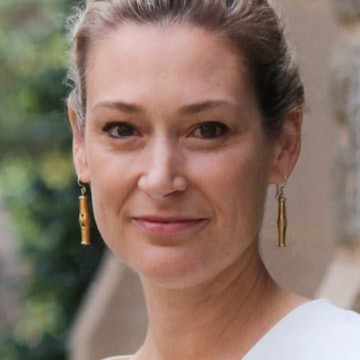
Laura Bingham
Executive Director, Institute on Law, Innovation, and Technology, Temple University
Laura Bingham is the inaugural Executive Director of Temple University's Institute on Law, Innovation, and Technology. Laura is a globally recognized expert on nationality and migration law and human rights and joins Temple after extensive experience in international human rights litigation. She has led complex investigations and transnational human rights litigation in every major regional system as well as many national courts.
Prior to joining Temple, Laura served as senior managing legal officer with the Open Society Justice Initiative. She established and led a global program on data, technology, and human rights, which covered content moderation and hate speech, equity and non-discrimination, the right to privacy, data governance, and digital transformation of state and private services. She also managed teams working on global migration, nationality law, and structural discrimination. Beginning in 2020, Laura created and co-managed an organization-wide fund on digital identification and served on the steering committee of a campaign on global health, technology, and surveillance during Covid-19.
Since 2017, Laura has taught courses on human rights and forced migration as an adjunct faculty member at New York University’s Center for Global Affairs. She has also lectured, spoken, and taught around the world on human rights, strategic litigation practice, equality law, law and technology, and migration and nationality law.
Prior to joining Temple, Laura served as senior managing legal officer with the Open Society Justice Initiative. She established and led a global program on data, technology, and human rights, which covered content moderation and hate speech, equity and non-discrimination, the right to privacy, data governance, and digital transformation of state and private services. She also managed teams working on global migration, nationality law, and structural discrimination. Beginning in 2020, Laura created and co-managed an organization-wide fund on digital identification and served on the steering committee of a campaign on global health, technology, and surveillance during Covid-19.
Since 2017, Laura has taught courses on human rights and forced migration as an adjunct faculty member at New York University’s Center for Global Affairs. She has also lectured, spoken, and taught around the world on human rights, strategic litigation practice, equality law, law and technology, and migration and nationality law.
Sessions
How to Avoid Digital ID Systems That Put People at Risk: Lessons from Afghanistan
The aim of the panel is to use the lessons learned from the Afghanistan case to take a critical and realistic look at the implementation of digital identification programs around the world. The speakers will comment, from their experience, on the issues that must be addressed by decision makers to avoid putting people at risk and violating their human rights. There will also be a time for questions and answers with the audience that will serve to build collective knowledge around the idea of a critical and realistic vision of digital identity.
Terms of Service
2024 Freedom Online Coalition


